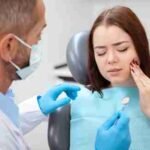When it comes to managing vein-related health concerns, expert care makes a significant difference. Our vein experts are highly trained professionals who specialize in diagnosing and treating varicose veins using the latest medical technology and evidence-based techniques. Whether you’re dealing with mild discomfort or serious symptoms, understanding how varicose veins are diagnosed and treated can help you make informed decisions about your vascular health.
Understanding Varicose Veins
Before diving into the diagnostic and treatment process, it’s essential to understand what varicose veins are. Varicose veins are swollen, twisted veins that usually appear in the legs and feet. They develop when the valves inside the veins fail to function properly, causing blood to pool and the veins to enlarge. Common symptoms include leg heaviness, aching, cramping, skin discoloration, and in more advanced cases, ulcers or bleeding.
How Do Our Vein Experts Diagnose Varicose Veins?
The first step in managing varicose veins is an accurate diagnosis. Our vein experts conduct a thorough evaluation to determine the severity of the condition and develop a personalized treatment plan.
1. Medical History and Physical Examination
During your initial consultation, our vein specialists will discuss your medical history, lifestyle habits, and any symptoms you’ve been experiencing. Factors such as genetics, pregnancy, prolonged standing, and obesity can increase your risk for varicose veins.
A physical examination follows, where the expert assesses the appearance of your legs. Visible bulging veins, skin changes, or ulcers provide important clues about the condition’s stage.
2. Duplex Ultrasound
To confirm the diagnosis, our specialists use duplex ultrasound, a non-invasive imaging technique. This advanced tool allows our vein experts to visualize the veins beneath the skin’s surface and evaluate blood flow. It identifies valve malfunction, vein size, and the direction of blood flow—all of which are crucial for selecting the most effective treatment option.
3. Venous Mapping
In more complex cases, venous mapping may be performed. This technique creates a comprehensive map of your vein system, which is particularly helpful when preparing for procedures such as ablation or surgery.
What Are the Treatment Options for Varicose Veins?
Once diagnosed, the next step is treatment. Patients often ask, “What are the treatment options for varicose veins?” The answer depends on the severity of your condition, overall health, and personal preferences. Our vein experts offer a wide range of modern and minimally invasive treatment options that deliver excellent results with minimal downtime.
1. Lifestyle Modifications and Conservative Management
For mild cases, conservative treatment may be the first step. This includes:
- Wearing compression stockings: These improve blood circulation and reduce symptoms like swelling and fatigue.
- Elevating the legs: Raising the legs helps prevent blood from pooling.
- Exercise: Regular movement promotes better circulation.
- Weight loss: Reducing body weight decreases pressure on your veins.
While these measures don’t eliminate varicose veins, they can significantly ease discomfort and prevent worsening.
2. Sclerotherapy
Sclerotherapy is a popular treatment for smaller varicose veins and spider veins. It involves injecting a special solution directly into the affected veins. This solution irritates the vein lining, causing it to collapse and eventually be absorbed by the body.
Our vein experts use ultrasound-guided sclerotherapy for precise targeting, especially for veins not visible to the naked eye. Multiple sessions may be needed, but the recovery is typically quick with minimal discomfort.
3. Endovenous Laser Treatment (EVLT)
EVLT is a cutting-edge, minimally invasive treatment that uses laser energy to seal off faulty veins. Guided by ultrasound, our vein experts insert a thin fiber into the vein and deliver laser pulses that close the vein walls.
The treated vein is naturally absorbed by the body over time, and blood is redirected to healthier veins. This procedure is performed in-office and requires only local anesthesia. Patients typically resume normal activities within a day.
4. Radiofrequency Ablation (RFA)
Similar to EVLT, radiofrequency ablation uses radio waves to generate heat and close off damaged veins. The procedure is also image-guided and performed under local anesthesia.
Our vein experts often recommend RFA for larger varicose veins due to its high success rate and low complication risk. Like EVLT, the recovery period is short, and results are long-lasting.
5. Ambulatory Phlebectomy
This procedure is ideal for removing surface-level varicose veins. It involves making tiny incisions through which the affected veins are removed using specialized instruments.
Since only local anesthesia is required, patients can walk immediately after the procedure. Our vein experts ensure minimal scarring and excellent cosmetic results with this technique.
6. Vein Stripping and Ligation
In rare and severe cases, surgical removal of varicose veins—known as vein stripping—may be necessary. The surgeon ties off the affected veins and removes them through small incisions.
Though less common today due to modern alternatives, our vein experts still consider this method when other options are unsuitable or have failed. Recovery takes longer compared to minimally invasive treatments, but the results can be equally effective.
Post-Treatment Care and Follow-Up
After undergoing treatment, patients receive detailed instructions to ensure optimal healing and long-term results. These include:
- Wearing compression stockings
- Avoiding strenuous activity for a few days
- Regular walking to promote circulation
- Follow-up ultrasounds to assess treatment success
Our vein experts schedule periodic evaluations to monitor progress and address any concerns. Preventive care, such as managing weight and staying active, is also emphasized to reduce the risk of recurrence.
Why Choose Our Vein Experts?
Choosing the right specialist is crucial for achieving the best outcomes. Our vein experts bring together extensive experience, advanced training, and a compassionate approach to care. Here’s what sets us apart:
- Comprehensive diagnostics: We use state-of-the-art imaging for accurate diagnosis.
- Tailored treatments: Each plan is customized to fit your needs and goals.
- Minimally invasive techniques: Our focus is on treatments with minimal downtime and maximum comfort.
- Holistic care: We look beyond symptoms and address the root cause of vein disease.
- Patient education: We believe informed patients make better decisions, so we prioritize open communication and education.
Final Thoughts
Varicose veins may be common, but they don’t have to disrupt your quality of life. With expert care, accurate diagnosis, and access to a full range of treatment options, you can experience significant relief and improved vein health. So, what are the treatment options for varicose veins? The answer lies in your individual condition, and our vein experts are here to guide you every step of the way.
Don’t wait for symptoms to worsen. If you’re struggling with discomfort, swelling, or unsightly veins, reach out to our vein experts today and take the first step toward healthier legs and a better quality of life.
Related Reads
- Top Notch Masonry: Your Trusted Contractor in Ottawa
- Lifeguard Training: Your Complete Guide to Certification with American Lifeguard
- Sustainable Wood Fencing: Eco-Friendly Options for Modern Homes
- Where to Find Certified Chimney Liner Installers in Seattle
- Ethiopian Airlines Virginia Office: Your Guide to Location & Services



